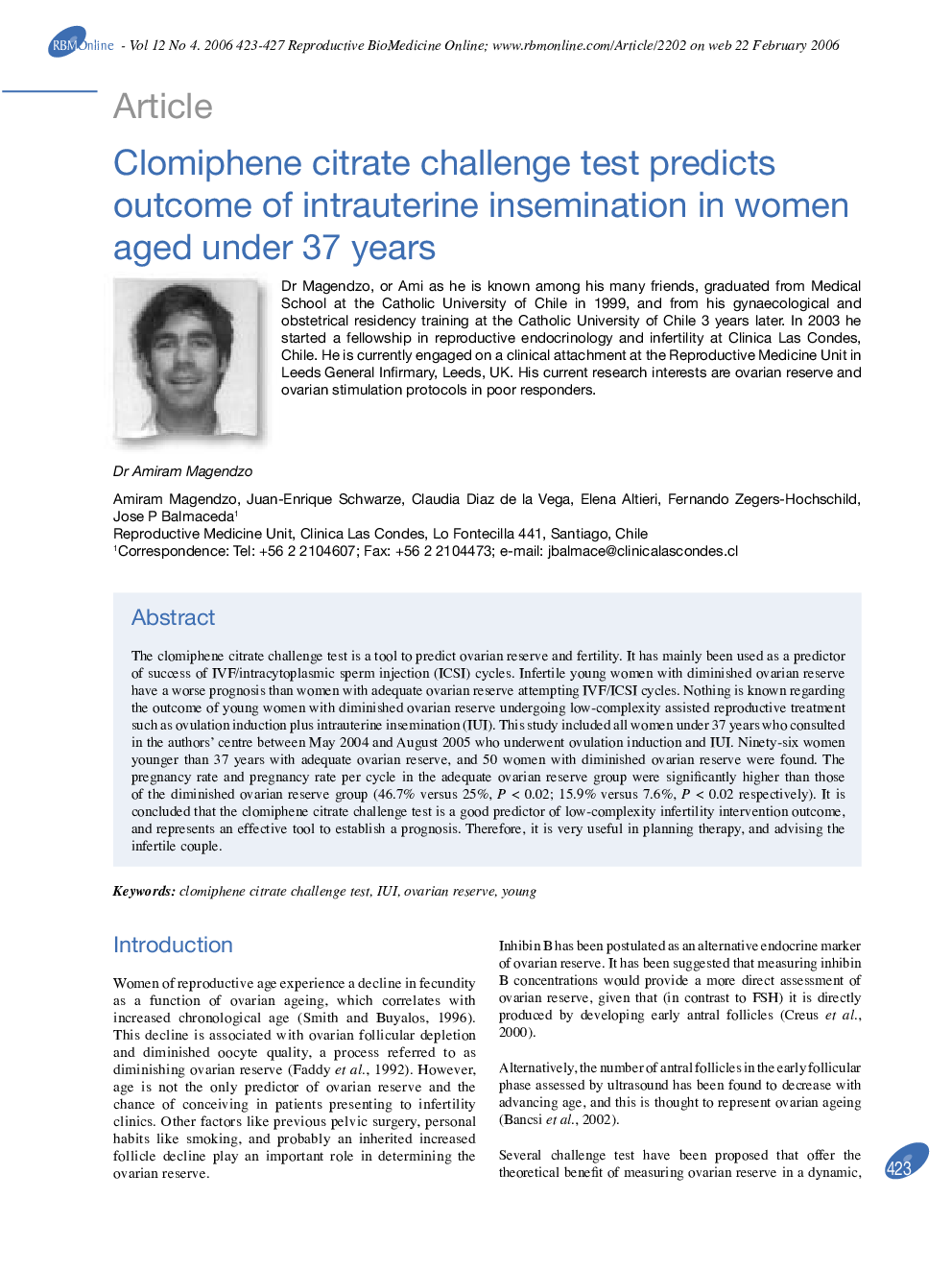| Article ID | Journal | Published Year | Pages | File Type |
|---|---|---|---|---|
| 3973516 | Reproductive BioMedicine Online | 2006 | 5 Pages |
The clomiphene citrate challenge test is a tool to predict ovarian reserve and fertility. It has mainly been used as a predictor of success of IVF/intracytoplasmic sperm injection (ICSI) cycles. Infertile young women with diminished ovarian reserve have a worse prognosis than women with adequate ovarian reserve attempting IVF/ICSI cycles. Nothing is known regarding the outcome of young women with diminished ovarian reserve undergoing low-complexity assisted reproductive treatment such as ovulation induction plus intrauterine insemination (IUI). This study included all women under 37 years who consulted in the authors’ centre between May 2004 and August 2005 who underwent ovulation induction and IUI. Ninety-six women younger than 37 years with adequate ovarian reserve, and 50 women with diminished ovarian reserve were found. The pregnancy rate and pregnancy rate per cycle in the adequate ovarian reserve group were significantly higher than those of the diminished ovarian reserve group (46.7% versus 25%, P < 0.02; 15.9% versus 7.6%, P < 0.02 respectively). It is concluded that the clomiphene citrate challenge test is a good predictor of low-complexity infertility intervention outcome, and represents an effective tool to establish a prognosis. Therefore, it is very useful in planning therapy, and advising the infertile couple.
